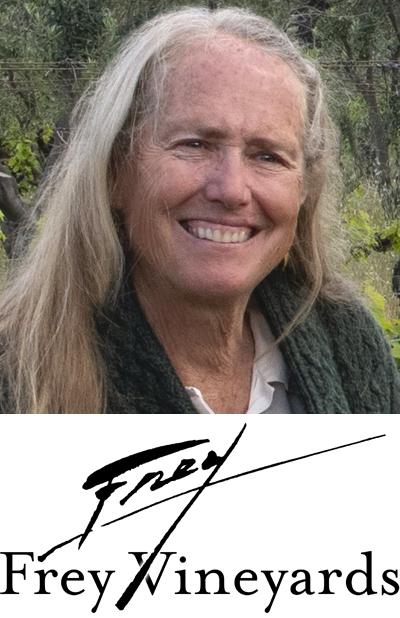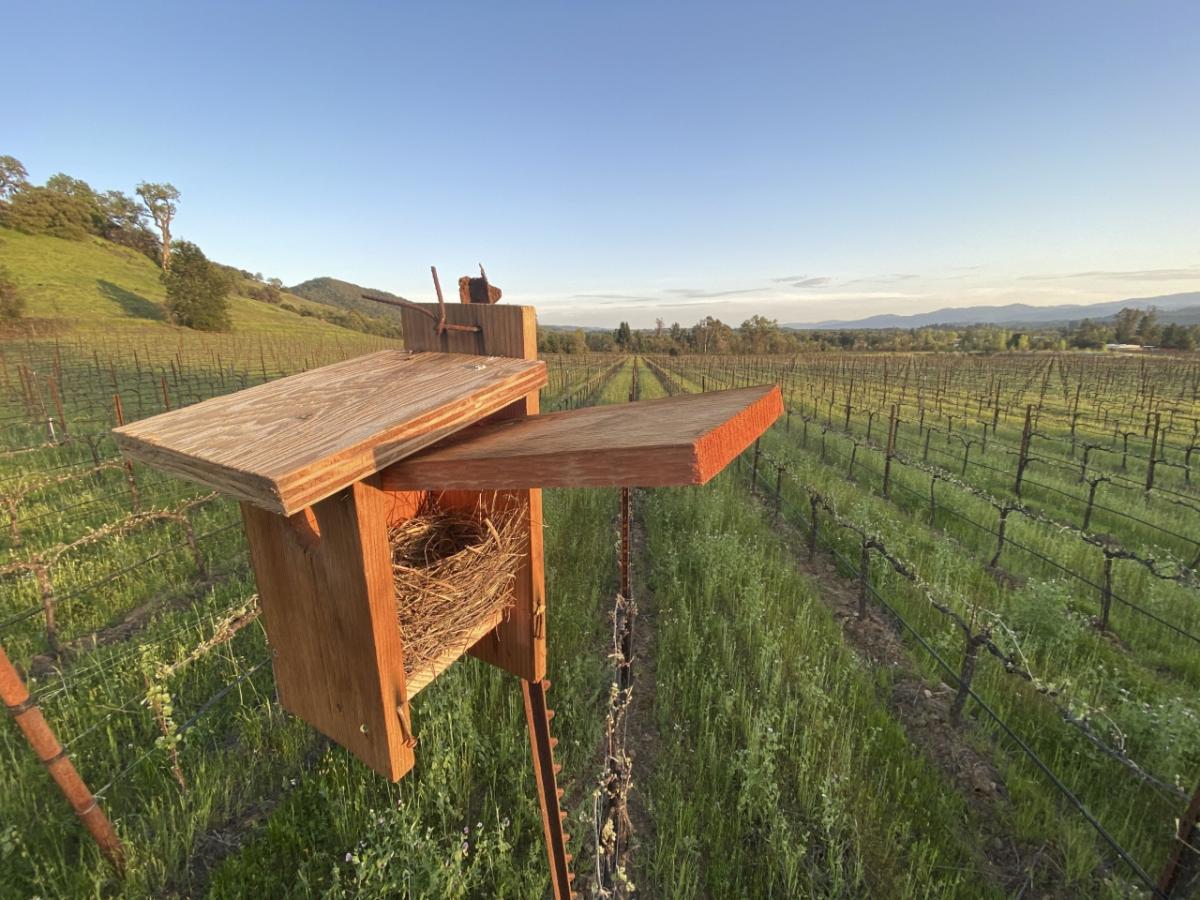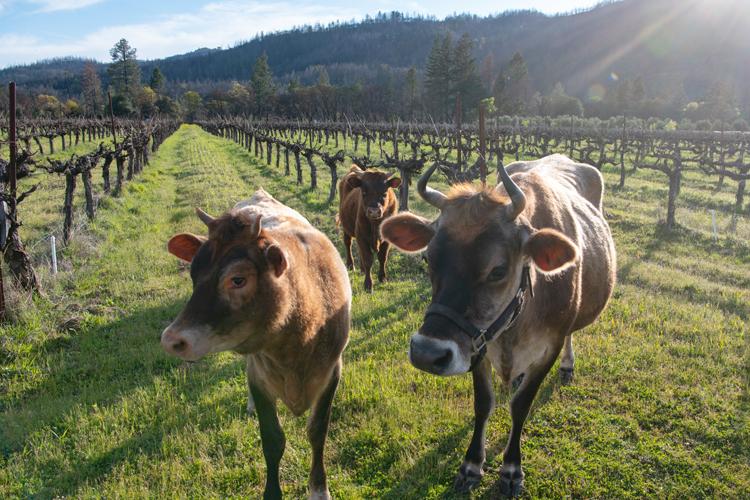Farming for the Future at Frey Vineyards
Farming for the Future at Frey Vineyards
by Katrina Frey co-founder of Frey Vineyards
May of 2020 presents a lush green face at the Frey Vineyards ranch in Mendocino County in northern California. It is two and a half years since the devastating wildfires of October 2017 (read Katrina’s 2018 article – Out of the Ashes on GreenMoney website). One still sees the burned silhouettes of stately Ponderosa Pine at the top of the ridges but progressing up the slopes are shrubby masses of tan oak, madrones and oaks that are stump sprouting from their strong pre-fire crowns. Frey Vineyards owns one thousand acres of land.
We farm one third of this and preserve the rest of the mountainous land to protect our watershed and provide habitat for native plants and animals. About 500 acres of the wild lands burned during the fire.
The new winemaking facility two miles down the road is leaping up as well. We hope to crush there this fall and welcome the public at the first of next year. The fires of 2017 destroyed Frey’s offices, bottling line, tasting room and sheds. In the new facility these will all be combined into one 42,000 square foot metal building powered by the sun. Expanded tank capacity will allow us to grow from processing 3000 Tons of grapes to 4000 Tons in the autumn of 2020.
Frey Vineyards farms 350 acres of certified organic grapes. This represents one third of our production. We buy the rest of our grapes from forty different local organic growers. All together it adds up to one thousand acres of certified organic land in Mendocino County. We do not fertilize our vineyards beyond working with soil fertility. A small amount of compost is added every few years, made from materials here on the ranch. Cover crop seeds are planted every fall between the dormant grape vines and grow watered by the winter rains. Leguminous cover crops such as fava beans, vetch and field peas add nitrogen to the soil while the roots of rye grass add tilth to the soil. We have noted that grape vines need to work a little harder to get what they need from a soil that is not too high in nitrogen. This translates into better flavors and wine quality.
Read Katrina's full article with lots of photos at- https://greenmoney.com/farming-for-the-future-at-frey-vineyards
====




